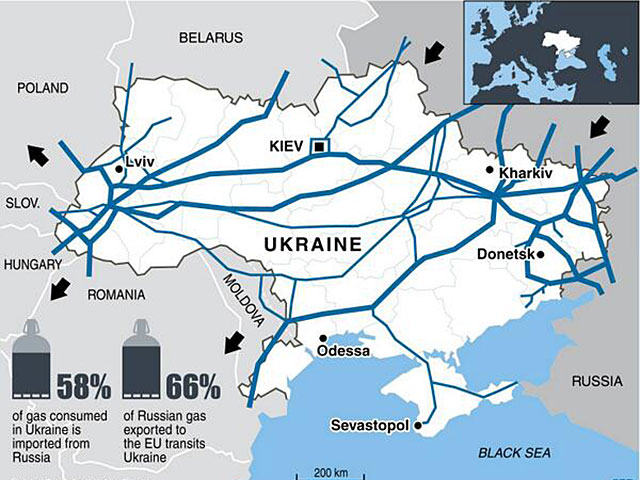
Ukraine – willing to reduce its dependence on Russian energy supplies – continues the search for alternatives to Russian gas. Last week, an important step was taken in that direction.
Ukraine – willing to reduce its dependence on Russian energy supplies – continues the search for alternatives to Russian gas. Last week, an important step was taken in that direction.
On April 28, the operator of the Ukranian gas transport system Ukrtransgas and the Slovak company Eustream signed a memorandum on reverse gas supplies from Slovakia to Ukraine. In the words of José Manuel Barroso, President of the European Commission, “This is an important first step to diversify Ukraine’s sources of gas supply and contributes to greater energy security in Eastern Europe and the EU as a whole.”
It is expected that gas supplies from Slovakia to Ukraine could reach 22 million cubic meters a day, which corresponds to approximately 8 billion cubic meters a year. Last year, approximately 2 billion cubic meters of gas were shipped to Ukraine from EU. Estimates show that gas supplies from Slovakia would make up almost a third of the supplies that Ukraine imported from Russia last year. Andrei Kobolev, head of Naftogaz Ukrainy, argued that Ukraine could import up to 30 billion cubic meters of gas via this route and minimize its dependence on Gazprom’s supplies. Shortly before the memorandum between Ukraine and Slovakia was signed, the German utility company RWE started delivering gas to Ukraine.

After the victory of Euromaidan, against a background of worsening relations between Russia and Ukraine, Gazprom canceled a price discount for natural gas supplies to Ukraine. From April 1, gas prices for Ukraine increased by 43.5 percent, up to $385.5 for one thousand cubic meters. In addition to increasing gas prices, Russia piled more pressure on Ukraine by supporting protesters in the south-eastern territory. According to the Ukranian media, the destabilizing actions of the Russian authorities have much to do with the shale gas deposits in the Donetsk and Kharkiv regions. Estimates of the Center for Energy Studies show that Ukrainian shale gas reserves constitute 3.6 trillion cubic meters.
Further escalation of tension in Ukraine may lead to disturbing consequences. Russia may lose one of its largest European gas markets. Additionally, losing Ukraine would threaten Russian gas transit to Europe: the gas pipelines and gas storage facilities are located in Western Ukraine. Ukraine has been trying to secure alternative gas suppliers and – most likely – will continue taking steps to reduce the dependence on Russia for its energy supplies.





